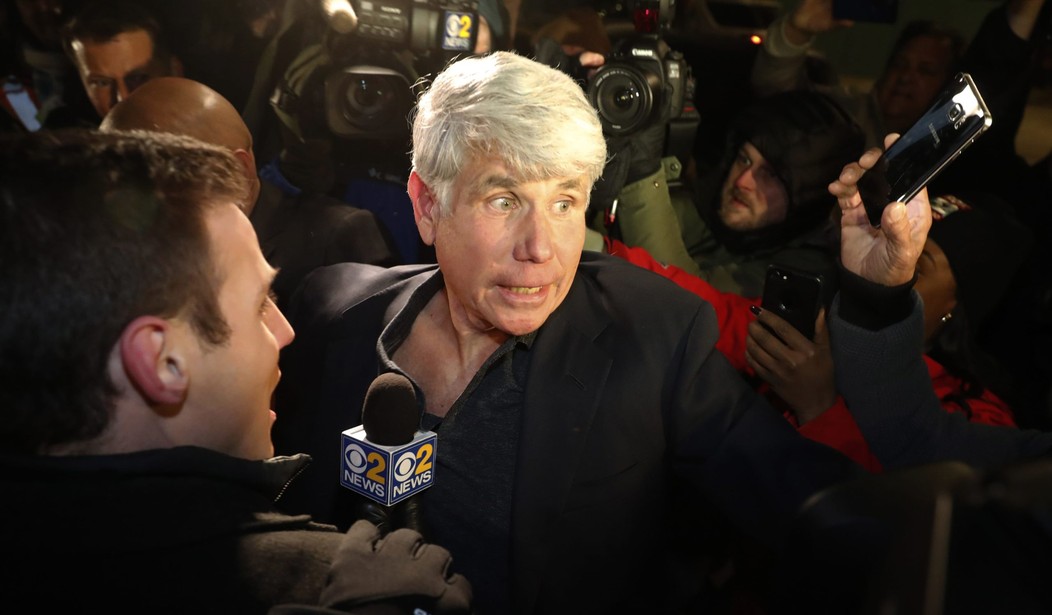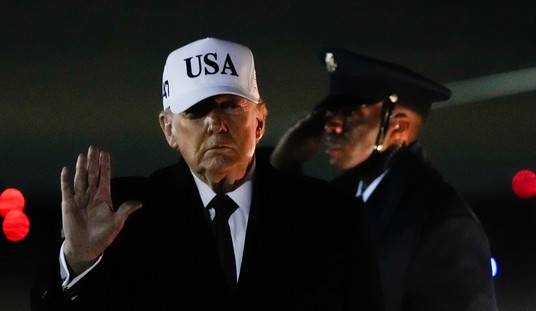Former Illinois Governor Rod Blagojevich told the assembled media after the commutation of his 14-year sentence by Donald Trump that he was a “freed political prisoner.” The Chicago Tribune destroyed that characterization completely.
Federal agents frog-marched him out of his house in December 2008, not because the government saw his garden-variety liberal Democratic agenda as a threat to the power structure of a nation that had just elected a liberal Democratic president, but because telephone surveillance recordings had convinced investigators that he was about to sell off a U.S. Senate seat to the highest bidder.
Illinoisans got used to this sort of whiny, self-serving balderdash while Blago was caught red-handed trying to sell the Senate seat that became vacant when Barack Obama was elected president. He was a “victim” of “a persecution masquerading as a prosecution.”
Trump apparently bought into Blago’s storytelling.
Rod Blagojevich did not sell the Senate seat. He served 8 years in prison, with many remaining. He paid a big price. Another Comey and gang deal! Thank you to @LisaMarieBoothe who really “gets” what’s going on! @FoxNews
— Donald J. Trump (@realDonaldTrump) February 19, 2020
If fact, Trump is right. Blagojevich did not sell the Senate seat. But he tried like hell to do so and the FBI stopped him before he could.
Besides, as Eric Zorn points out, selling the Senate seat was part of a pattern of corrupt practices that Blagojevich was convicted of.
- “Extorting the CEO of a children’s hospital by withholding important state funding to help sick children until the CEO provided campaign contributions.
- “Extorting the owners of a racetrack by intentionally holding up the signing of important state legislation until the owners provided campaign contributions in response to an explicit demand for them.
- “Extortionately demanding funding for a high-paying private sector job, as well as campaign contributions, in exchange for naming a replacement to an open U.S. Senate seat.
- “Lying to the FBI to cover up his criminal activity.”
“Those are the acts of a con man, not a “political prisoner,” Zorn wrote. Indeed, the endemic corruption in Illinois politics is all about the “Big Con.” It’s a “pay for play” system and Blagojevich’s defense was that everybody does it.
Small groups of reformers from both parties aren’t making very much headway. Following Blago’s arrest and conviction, an effort was made to identify the weak points in the system where corruption flourished. They actually issued a 95-page report. You can guess what happened to it.
One section of the report included proposals to address “structural problems” that lead to corruption and inefficiency in Illinois state government. The report recommended three structural changes: pass nonpartisan legislative district maps, install term limits for legislative leaders, and make changes to the House and Senate rules curbing the power of leadership.
A decade later, Madigan’s House of Representatives has not adopted any of those reform recommendations. And Pritzker isn’t asking him to.
J.B. Pritzker, the current governor, was one of those prominent businessmen that Blago tried to recruit to buy Obama’s Senate seat. Pritzker, who had contributed $140,000 to Blagojevich’s campaign, said he wasn’t interested in being a senator.
In 2017, the Chicago Tribune published recordings from FBI wiretaps showing now-Gov. J.B. Pritzker told Blagojevich he was “really not that interested” in Barack Obama’s vacant U.S. Senate seat. Rather, he was interested in being appointed Illinois treasurer.
“Ooh, interesting,” Blagojevich said during the November 2008 phone call. “Let’s think about that. You interested in that?”
“Yeah,” Pritzker responded, “that’s the one I would want.”
Blagojevich later asked Pritzker for a campaign contribution as they discussed the possible appointment. From 2002 to 2006, Pritzker and his wife donated at least $140,000 to Blagojevich’s campaign, according to the Chicago Tribune.
Right now, the most powerful politician in the state, Speaker of the House Mike Madigan, is the subject of intense scrutiny by the feds for his own corruption schemes. Madigan is used to it. They’ve tried and failed in the past to nail him.
Blago is small potatoes, although he should be congratulated for coming up with a novel means of campaign fundraising. The real corruption can be found when voters wake up in the morning and look in the mirror. They are so inured to politicians violating the public trust that they just don’t care enough anymore to put pressure on the powers that be to reform.
Harsh? Perhaps. But if voters in Illinois won’t take responsibility for their own government, why should anyone else?










Join the conversation as a VIP Member